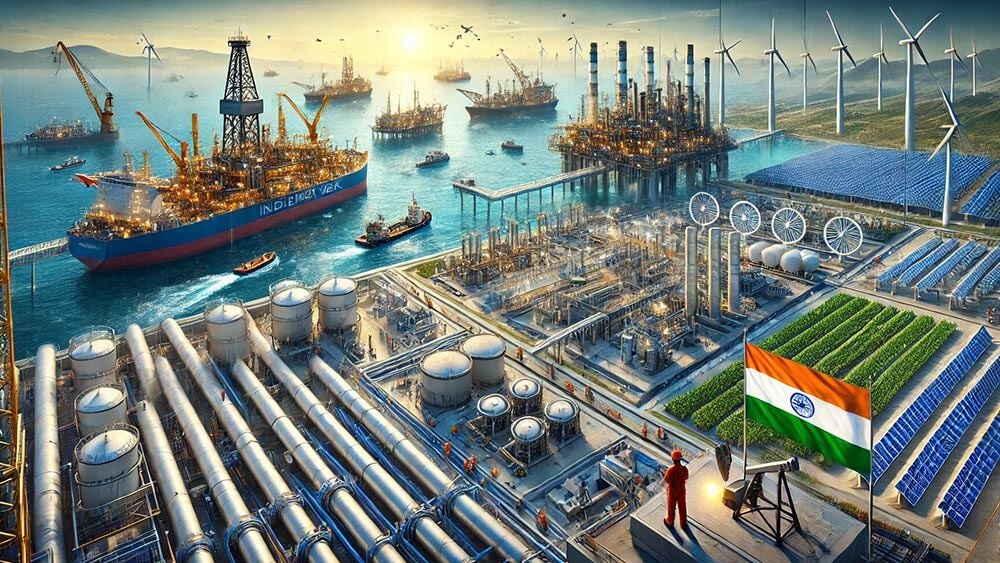
Aug 23, 2025
Blog environment Global Ship Recycling Market: Turning End-of-Life Vessels into a Circular Opportunity
The global ship recycling market is shifting from low-cost beaching toward safer, greener, and more regulated facilities. Demand for scrap steel, stricter environmental rules, and transparency expectations from cargo owners and financiers are reshaping where and how ships are dismantled. South Asia still dominates volumes, while Turkey and select yards in Europe and the Middle East are growing for “green” projects. Digital traceability, better yard infrastructure, and sustainable steel demand will define the next growth phase.
Ship recycling (also called ship breaking) is the process of dismantling end-of-life vessels so their steel, non-ferrous metals, machinery, and components can re-enter the economy. A typical ocean-going ship is a floating stockpile of steel; recycling it avoids the emissions and energy use of producing an equivalent amount of primary steel. Done responsibly, ship recycling is a cornerstone of the maritime industry’s circular economy.
Recycled ship steel is a crucial feedstock for electric-arc furnaces and re-rollers, especially in construction-heavy regions. As countries push lower-carbon materials, scrap-based steel retains a cost and sustainability edge versus virgin iron and coking coal pathways.
Policy is the market’s metronome. Key frameworks include:
These rules push owners to plan earlier, maintain better documentation, and select audited facilities.
Aging fleets, tighter efficiency rules, and the rise of alternative-fuel ships (LNG, methanol, ammonia-ready) accelerate retirements. Life-extension costs and retrofits often don’t pencil out, nudging owners to recycle and reinvest in cleaner tonnage.
Banks, P&I clubs, and cargo owners increasingly include responsible recycling in their ESG requirements. Charterers don’t want headline risk from unsafe practices; compliant recycling can secure better financing terms and protect brand value.
The global market for ship recycling was valued at $7 billion in 2024 and is estimated to increase from $9.1 billion in 2025 to reach $13 billion by 2030, at a compound annual growth rate (CAGR) of 7.4% from 2025 through 2030.
Turkey balances competitive pricing with better infrastructure and proximity to European scrap markets. EU-approved yards, shorter tows, and robust hazardous-waste handling make it a preferred destination for EU-flag and specialized units.
Selective European yards and facilities in the Middle East focus on defense vessels, offshore units, complex dismantling, and high-compliance projects where traceability and worker safety are paramount.
China previously dominated but retrenched from foreign-flag dismantling; however, regional capabilities in Japan and South Korea are relevant for government fleets and decommissioning complex assets under strict standards.
By Vessel Type: bulk carriers, tankers, container ships, general cargo, Ro-Ro/PCTCs, offshore units (rigs, FPSOs), and specialized vessels.
By Method:
Ship recycling prices typically track regional scrap steel benchmarks and currency moves. Owners weigh:
Light displacement tonnage (LDT) prices offered by yards
“Green Steel” Pull-Through
As construction and automotive buyers ask for verified low-carbon steel, demand for scrap increases. That supports compliant recycling and EAF steelmaking near major yards.
From MOUs to Audits
Paper commitments are giving way to third-party audits, live monitoring, and contractual enforcement of worker safety, asbestos handling, and downstream traceability of wastes.
Digital Traceability & Data Rooms
Owners are adopting digital IHMs, QR-tagged components, and tamper-evident photo/video logs to document every step—from gas-freeing to block-lifting to final waste disposal.
Offshore Energy Decommissioning
A looming wave of offshore platforms, FPSOs, and wind farm components will need dismantling. These projects favor dry-dock or quayside methods and high-skill yards, expanding the addressable market beyond conventional ships.
Responsible Finance
Poseidon Principles–aligned lenders and cargo owners increasingly require responsible recycling clauses. Expect more sustainability-linked terms tied to yard certification and incident records.
Yards:
Steelmakers & Re-rollers:
Financiers & Insurers:
The global market for ship recycling was valued at $7 billion in 2024 and is estimated to increase from $9.1 billion in 2025 to reach $13 billion by 2030, at a compound annual growth rate (CAGR) of 7.4% from 2025 through 2030. The direction of travel is clear: fewer, better yards handling more complex projects with tighter proof of safety and environmental performance. Regions that combine scale with certification and infrastructure will gain share. As supply chains favor lower-carbon materials and digital traceability, compliant recycling becomes not just the ethical choice—but the economical one.
Updated IHM Part I onboard and verified before sale

I am Adarsh Rawat and I have a degree in BBA from Jamia Milia Islamia, I have honed a diverse skill set that spans digital marketing, traditional advertising, brand management, and market research. My journey in marketing has been characterized by a commitment to innovation and an ability to adapt to emerging trends.

We are your trusted research partner, providing actionable insights and custom consulting across life sciences, advanced materials, and technology. Allow BCC Research to nurture your smartest business decisions today, tomorrow, and beyond.
Contact UsBCC Research provides objective, unbiased measurement and assessment of market opportunities with detailed market research reports. Our experienced industry analysts assess growth opportunities, market sizing, technologies, applications, supply chains and companies with the singular goal of helping you make informed business decisions, free of noise and hype.